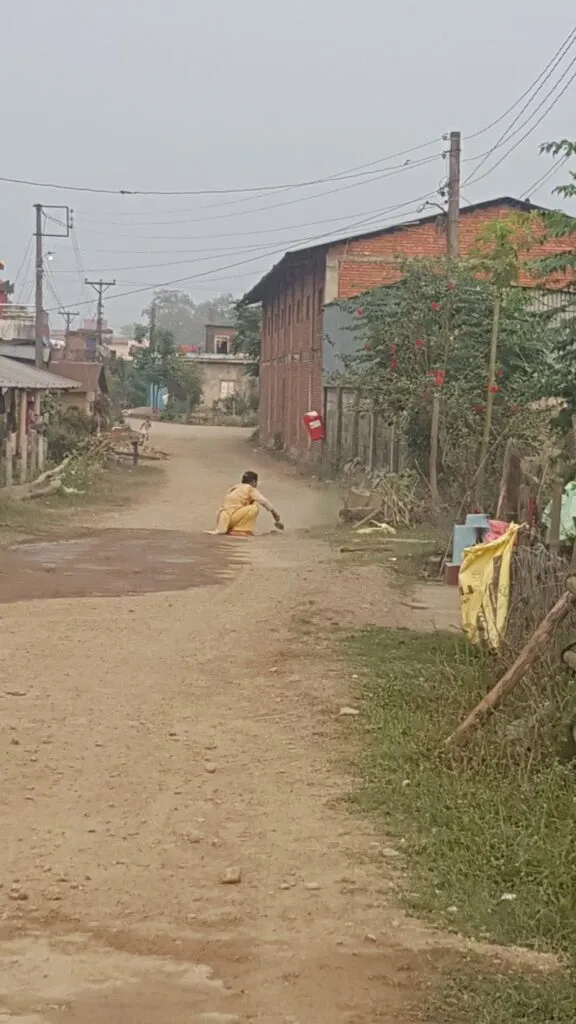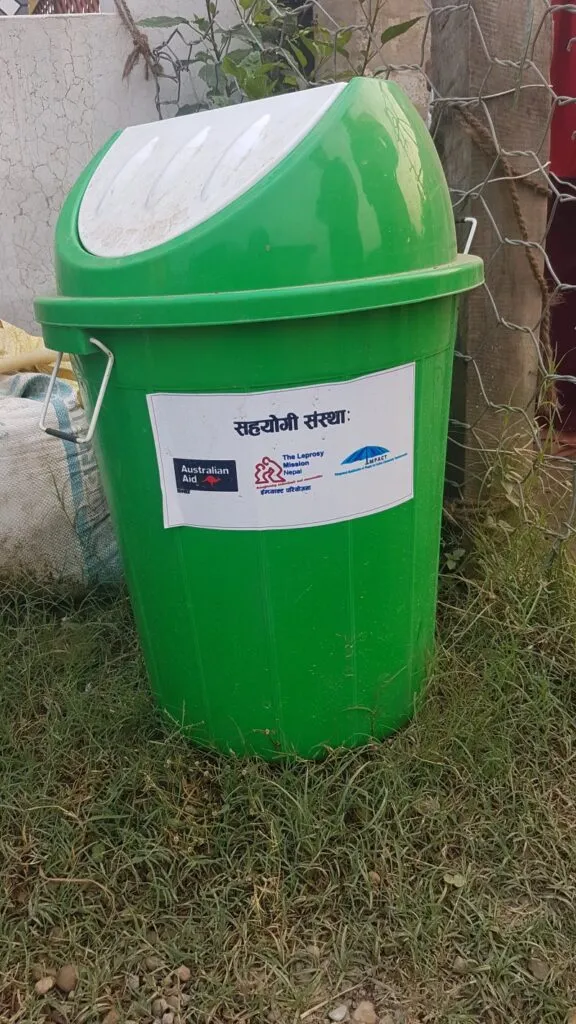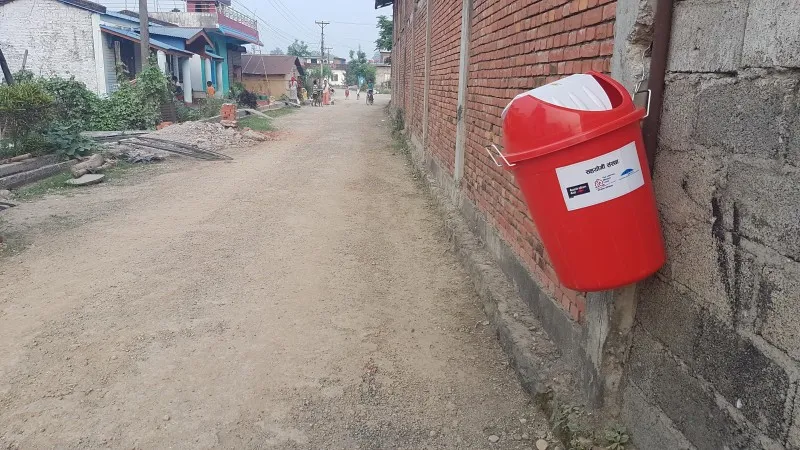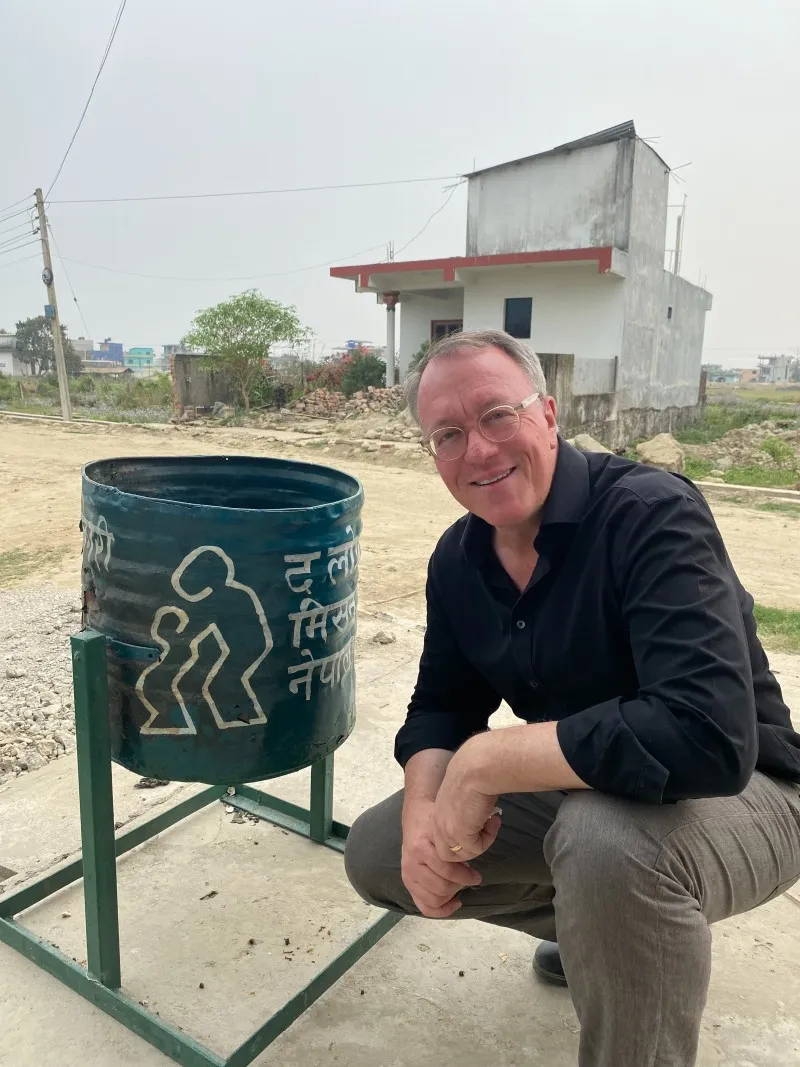While visiting Nepal earlier this year, Greg Clarke, CEO of Leprosy Mission Australia, felt a strong urge to help meet the locals’ basic need for things like clean water and sanitation.
“These are basic human needs, simple things that in Australia we take for granted and expect—we complain as soon as anything doesn’t work!” he says.
With World Clean-Up Day on September 20, tens of millions of people worldwide will organise coordinated clean-ups to as a reminder of our collective responsibility to maintain a clean and healthy environment.



With the slogan “Make room for life!” World Clean-Up Day has been added to the official United Nations Calendar for the first time this year.
In Nepal, 15 percent of the population still lacks access to basic sanitation facilities, with rural areas, in particular, lacking adequate water, sanitation, and hygiene facilities.
The district Dr Clarke visited to see the outcomes of a Leprosy Mission Australia-funded activity called WASH (Water, Sanitation, and Hygiene) revealed “really poor sanitation and hygiene practices,” he recalls.
“For example, open defecation still occurred even though the government had run campaigns to install toilets,” he said.
“So, our project worked to build a basic understanding in the community of good hygiene practices such as appropriate handwashing techniques, the risks of open defecation, and learning to drink from clean water sources (for example, by boiling water or using water filters).”
The WASH project was part of a TLMA and Australian Government DFAT Funded project called IMPACT, which aims to improve health outcomes for people with leprosy and disabilities and reduce waterborne illnesses.
“Improved sanitation and hygiene also reduce transmission of leprosy and other Neglected Tropical Diseases. Leprosy survives when people’s basic health is poor,” notes Dr Clarke.
During his trip, Dr Clarke saw how simply cleaning up the streets and providing rubbish receptacles transformed people’s lives.
“Streets with rubbish bins appeared cleaner, with fewer loose pieces of rubbish floating around—an easy improvement to make! The rubbish bins were usually installed near the homes of the IMPACT project’s self-help group participants. They often took the initiative to tell people to use the bins when they saw they weren’t doing so. The community is happy to have cleaner streets,” he said.
“The project participants learned quickly and gained a better understanding of cleanliness practices. They stopped using water sources that were identified to be unclean. Handwashing became more common. People reported fewer cases of diarrhoea in their families. The project also helps to build accessible toilets for people with disabilities. People with these toilets reported that they were using their toilets more now. I saw people who were very proud of their toilets, with Leprosy Mission and Australian Aid logos on them!”
Dr Clarke says he felt a “rush of responsibility to offer assistance where we can in these very simple and urgent needs.”
“My prayer is that our hearts will be moved to demand for others what we demand for ourselves.”
“And I pray that people in these communities can continue to build their knowledge of practices that improve hygiene and sanitation so they can reduce the risk of waterborne diseases and leprosy transmission.”
Learn more about how you can support these activities through The Leprosy Mission Australia website.
You can provide a practical ‘Gift of Love’ to communities with limited or no garbage disposal or sewer systems at shop.leprosymission.org.au


